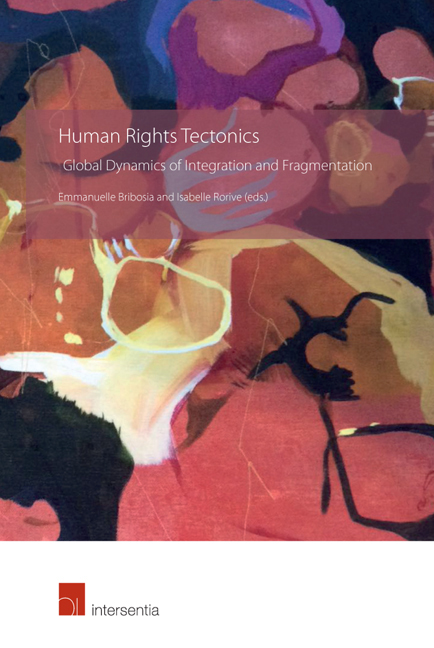Book contents
- Frontmatter
- Foreword
- Contents
- List of Cases
- List of Contributors
- Introduction to Human Rights Tectonics
- PART I PROMISES AND CHALLENGES OF AN INTEGRATED APPROACH TO HUMAN RIGHTS
- The Formation of a Common Law of Human Rights
- UN Special Procedures: System Puppets or User's Saviours?
- The African Court on Human and Peoples’ Rights: A Uniquely Equipped Testbed for (the Limits of) Human Rights Integration?
- The Role of Non-Judicial Bodies in Human Rights Implementation
- PART II HUMAN RIGHTS TECTONICS THROUGH AN ISSUE-BASED APPROACH
- PART III HUMAN RIGHTS DYNAMICS IN EUROPE
- About the Editors
The Role of Non-Judicial Bodies in Human Rights Implementation
from PART I - PROMISES AND CHALLENGES OF AN INTEGRATED APPROACH TO HUMAN RIGHTS
Published online by Cambridge University Press: 31 January 2019
- Frontmatter
- Foreword
- Contents
- List of Cases
- List of Contributors
- Introduction to Human Rights Tectonics
- PART I PROMISES AND CHALLENGES OF AN INTEGRATED APPROACH TO HUMAN RIGHTS
- The Formation of a Common Law of Human Rights
- UN Special Procedures: System Puppets or User's Saviours?
- The African Court on Human and Peoples’ Rights: A Uniquely Equipped Testbed for (the Limits of) Human Rights Integration?
- The Role of Non-Judicial Bodies in Human Rights Implementation
- PART II HUMAN RIGHTS TECTONICS THROUGH AN ISSUE-BASED APPROACH
- PART III HUMAN RIGHTS DYNAMICS IN EUROPE
- About the Editors
Summary
The classic means of protecting human rights, through independent and impartial courts, while indispensable in a democratic society based on the rule of law, may not always be sufficient for ensuring, at the national level, that human rights are fully respected by national authorities.
The above statement by the Council of Europe (CoE), which dates from 1998, expresses an early awareness of the need to go beyond a paradigm of human rights where protection is monopolised by the judiciary, at least within the States of the CoE.
Almost 20 years later, the need for such a paradigm shift, towards a system where various non-judicial bodies work beside and even before courts to prevent human rights violations and monitor human rights implementation, is still relevant and concerns the global arena of human rights protection.
The awareness of this is neither new nor recent: this was the idea underpinning the creation of the Fundamental Rights Agency of the EU (FRA), as fostered by Alston and Weilerin their seminal contribution on the need to establish a monitoring body of fundamental rights protection within the EU legal framework. Indeed, this was expected to be a turning point in Europe's protection of human rights policy, which finally seemed to be conceived not only as an ex post and ad hoc activity (through the role of the judiciary), but also as an ex ante and preventive action, through the operation of a non-judicial body committed to monitoring and identifying issues of concern.
Currently, we can say that a real paradigm shift never happened; in practice, the role of non-judicial bodies has been limited by the still-dominant role given to courts in the protection of rights. However, the need expressed by the CoE and leading scholars still remains. Starting from this unresolved issue of human rights protection mechanisms, this chapter aims to take the first step towards diverting the scholar's attention from the judicial protection of human rights and refocusing it on the role of agencies and institutions (non-judicial bodies) as human rights actors in the global arena.
This attempt cannot but start from a definition of what is meant by non-judicial bodies acting in human rights protection at the national, supranational and international levels.
- Type
- Chapter
- Information
- Human Rights TectonicsGlobal Dynamics of Integration and Fragmentation, pp. 89 - 108Publisher: IntersentiaPrint publication year: 2018



